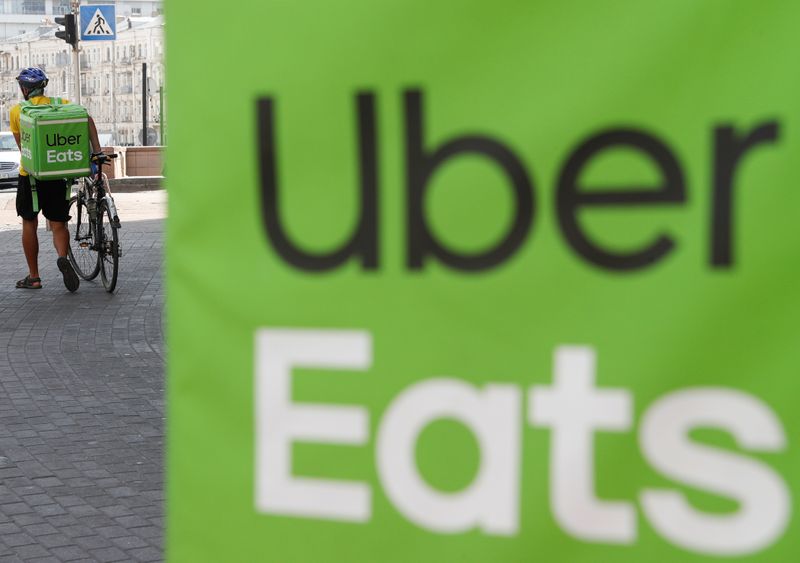This post was originally published on this site
https://i-invdn-com.akamaized.net/trkd-images/LYNXMPEG0K02F_L.jpg © Reuters. An Uber Eats courier walks in Kiev
© Reuters. An Uber Eats courier walks in KievBy Rama Venkat
(Reuters) – Uber (N:) has sold its online food-ordering business in India to local rival Zomato in exchange for a 9.99% stake in the startup backed by China’s Ant Financial, limiting its exposure to a crowded market where it has struggled to grow.
The all-stock deal is likely to push Zomato to the top position in India’s food delivery market, ahead of Swiggy, which counts China’s Tencent Holdings (HK:) as an investor.
Zomato – valued at around $3 billion after raising money from Alibaba (N:) affiliate Ant this month – said Uber Eats in India will discontinue operations, and direct restaurants, delivery partners and users to the Zomato platform from Tuesday.
“India remains an exceptionally important market to Uber and we will continue to invest in growing our local Rides business,” said Dara Khosrowshahi, Uber’s chief executive officer.
Uber Eats in India accounted for 3% of the business’ gross bookings globally, but more than a quarter of its adjusted EBITDA loss in the first three quarters of 2019, the U.S. ride-hailing firm said.
Uber Eats, which also pulled out of South Korea earlier this year, said it will continue to operate in Bangladesh and Sri Lanka.
While this is the first large acquisition in the Indian online food delivery market, deal activity has been heating up globally.
Earlier this month Dutch firm Takeaway.com (AS:) pipped investment company Prosus to buy Britain’s Just Eat (L:) for 6.2 billion pounds ($8.1 billion). In December, Germany’s Delivery Hero (DE:) agreed to buy South Korea’s top food delivery app owner Woowa Brothers for $4 billion.
Fusion Media or anyone involved with Fusion Media will not accept any liability for loss or damage as a result of reliance on the information including data, quotes, charts and buy/sell signals contained within this website. Please be fully informed regarding the risks and costs associated with trading the financial markets, it is one of the riskiest investment forms possible.

